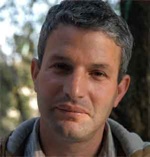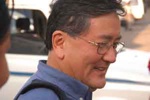If you’ve listened to my recent audio and/or podcasts, you already know that one of the things that’s most frustrating in developing countries is the lack of reliable electric power. Emmanuel was really impressed with the electrical infrastructure in India because here it is the exception, rather than the rule, for the power to be out. In places like Dharamsala, there might be a short outage of 15 minutes in a day, or you might go for days without any interruption. The longest failure I ever experienced was about 4 hours. People take it in stride, but only local commerce can take place during a power failure – it would be a disaster for any Internet-based business, or for any business requiring computers.
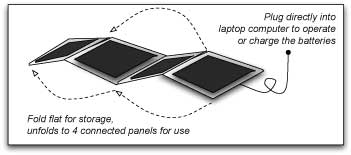
Many businesses do have one or more uninterruptable power supplies (UPS) that provide a short stretch of battery power for their computers in the event of a temporary failure, but in Emmanuel’s area in Nigeria, power outages might stretch for a couple of days, so a UPS won’t do any good. And gasoline is scarce and expensive, so a generator isn’t an option.
Solar power has to be one possible answer. Today Brian took a car and drove to purchase a four-panel solar array for Emmanuel to take back to his school.
| Play the interview: |
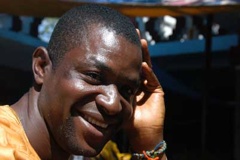 This is a “cafeteria interview*” of Emmanuel Ande Ivorgba, conducted in New Delhi on Friday, the 30th of March, 2007 at the YWCA. Beginning in 2005, after encountering The Dalai Lama Foundation on the world wide web, Emmanuel began a study circle for adults. This expanded into 14 adult circles and 25 students circles, and centered around 8 schools in Jos, Nigeria.
This is a “cafeteria interview*” of Emmanuel Ande Ivorgba, conducted in New Delhi on Friday, the 30th of March, 2007 at the YWCA. Beginning in 2005, after encountering The Dalai Lama Foundation on the world wide web, Emmanuel began a study circle for adults. This expanded into 14 adult circles and 25 students circles, and centered around 8 schools in Jos, Nigeria.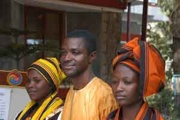 Private schools play an important part in education in Nigeria. Public schools cannot handle the entire load, and students frequently begin school at a late age, so private schools have stepped in to carry part of the load. Students are encouraged to stay in school until they graduate and sometimes do not graduate until as late as the age of 23. (The photo shows Faith, Emmanuel and Mercy at Chonor House in Dharamsala.)
Private schools play an important part in education in Nigeria. Public schools cannot handle the entire load, and students frequently begin school at a late age, so private schools have stepped in to carry part of the load. Students are encouraged to stay in school until they graduate and sometimes do not graduate until as late as the age of 23. (The photo shows Faith, Emmanuel and Mercy at Chonor House in Dharamsala.)